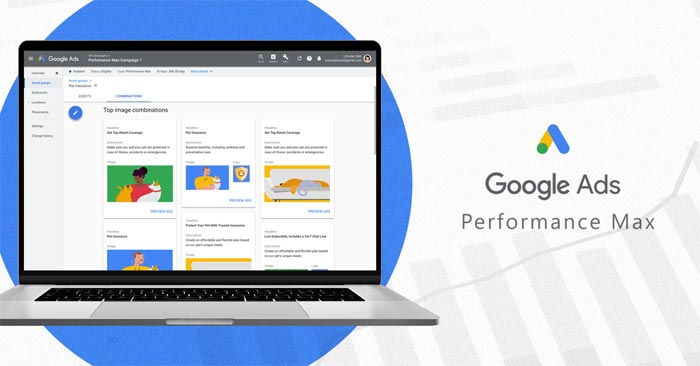Making Your Mark: Building Your Brand’s Authority

In 2022, Google released Double-E-A-T, a guideline for how Google evaluates websites for ranking on its search engine – Experience, Expertise, Authoritativeness, and Trustworthiness. While there’s no point system to give marketers an idea of how Google uses these criteria, it’s clear that a brand’s authority plays a significant role in its page’s ranking.
As brands continue to make their mark on the digital space, it’s essential for businesses to assert their authority online. This means creating a seamless experience for potential clients to persuade them to become loyal customers.
Making customers trust your company, especially if they’ve only interacted with you on the internet, can be difficult. You’ll need to double down on building your brand’s authoritativeness to show them the extent of your expertise.
A group of researchers aimed to provide insight on the importance of authoritativeness for eCommerce websites. It was concluded that the perceived online reputation of a company positively impacts the purchasing intention of customers while lowering perceived risk.
What is Brand Authority?
One of Google’s metrics for evaluating a website is authoritativeness. Among the four metrics: Experience, Expertise, Authoritativeness, and Trustworthiness, authoritativeness focuses on the website, its contents, and its creator.
In the quest to secure your rank on Google’s Search Engine Results Page (SERPs), putting out expertly made content that’s informative is one of the best ways to go. It’s also a move that can boost your brand’s authority and increase your organic search rates.
Now, you may be wondering why organic research is important. It’s because, in the digital age, organic searches are usually the first touchpoint of your customer with your brand. If you appear on the first page of Google, potential customers will think that you’re trustworthy enough to be there.
Why is Brand Authority Important?
Brand authority is one of Google’s biggest determinants for search engine rankings. An authoritative brand will reap the benefit of more organic search results. However, it’s not easy to be an authority in your industry. It takes time, research, and writing.
An authoritative brand is a trusted information source. Anyone who clicks on an authoritative brand’s website can rest assured knowing that the content is professionally written, and that the information is accurate. One thing to remember is that brand authority is more than just reliable content, it also relies on excellent SEO practices to ensure the quality and hygiene of the content.
Apart from SEO services, such as technical or on-page SEO and relevant content marketing, your brand’s authority is also the result of your client’s experience with all the channels of your business. The more cohesive the experience, the better.
This is why the top brands in the Philippines have invested heavily in their company’s digital presence because it can drive their brand’s authoritativeness even further. They understand how crucial it is to make a good impression on their clients and assert industry expertise.
How to Find Out if Your Brand is Authoritative?
Often, when individuals scour the internet, they rely on certain brands and websites for answers. In a survey conducted in 2021, over 1000 US residents were asked which search engine they trusted the most. Unsurprisingly, 65.7% of the survey respondents answered Google. Meaning Google’s results can play a significant role in your company’s online presence.
Potential customers are more likely to click on established websites that are recognizable, scholarly, and credible.
- Recognized sources are usually government, education, and non-profit websites. If the website ends with .gov, .edu, and .org, they’re classified as a recognized source. Websites such as the Official Gazette of the Republic of the Philippines, Harvard University, and Charity Water are examples of recognized sources.
- Scholarly sources are websites that publish academic journals and articles. Websites such as Elsevier, Wiley, and Taylor & Francis fall under this category.
- Credible sources are well-established publications. Trustworthy publications such as Al Jazeera, Bloomberg, and CNN are examples of this category.
For brands that do not fall under any of these categories, internet users will rely on Google. One way to determine if your brand is authoritative or not is if your business ranks high on non-branded keywords.
For example, let’s say that a user is looking for the leading clothing brands in the Philippines. So, when they type “clothing brands in the Philippines” on Google, they’ll be presented with numerous options. Once they scroll past the sponsored pages, they’ll find the most famous clothing brands in the country and associate them with Google-recognized quality.
Google’s results combined with your company’s overall presence can mean the difference between profit and loss. That being said, focusing on enhancing your brand’s authoritativeness can positively impact your company’s performance.
How to Build Brand Authority?
If you feel like your company isn’t considered a subject matter expert by Google yet, then you can increase your brand’s authority by integrating these practices into your process:
Build a Strong Brand

Take the time to develop your voice, logo, and brand name. A recognizable logo and brand name can make a lasting impression. Just remember to integrate the ideal characteristics of a brand name so customers can associate you with your product.
By giving your company a remarkable identity and implementing it across your channels, you can create a strong presence. Your company’s brand is essential to establishing it as an authority in your industry.
Write Relevant Content
Once you’ve developed a brand and zeroed in on your target market, you’ll need to create focused informative content. It’s crucial that you choose your niche and stick to it. This positions your brand as an authority on the subject.
Just make sure to create original content that’s backed by real data by referencing credible sources.
Spell Check
Your website may look professional, but one typo can make your customers backpedal. Nowadays, scammers are making their websites look exactly like yours, which is why numerous alerts advise individuals to be wary of typos on a website.
Spell-checking your website’s copywriting is an essential step in solidifying your legitimacy and commitment to quality. You can easily do this by running your copy through a spell check software.
Integrate Keywords
One reward of being an authority in your industry is ranking high on search engines. But, if you’re not adding the right keywords, you may not reap this benefit. To accomplish this, you’ll need to have good SEO practice.
Add Other Media
Using media on your website can work to your advantage. Not only can it show off your company’s unique style, but it can also keep customers on your pages for longer.
Adding a video or a photo can make your visitors engage with your content, which can help reduce bounce rates and increase engagement rates.
Bounce and engagement rates are one of Google Analytics 4’s key digital marketing metrics. Google uses a website’s bounce and engagement rates to identify if the page is helpful or not. These two metrics are just one of many that Google uses to determine if a website should rank higher on its results.
Additionally, these digital marketing metrics can also function as a KPI for your business. By setting your company’s KPIs to track the success of your campaigns, you can create a clearer strategy for your marketing efforts.
Guest Post on Reputable Sites
Guest posting on other reputable sites is a great way to increase your website’s authoritativeness. When a reputable website links to your company, Google takes it as an indication that you’re an expert on the topic.
What are the Different Tools that can Track Brand Authority?
Now that you know how to increase your website’s authoritativeness, you’re probably itching to find out how your brand is fairing compared to other companies. There is numerous software available that can help you track your brand’s authoritativeness.
Here are some of the software you can use to benchmark your brand’s authoritativeness:
- SEMrush
- MOZ
- AHREFS
- Latana
- Google Trends
What is Domain Authority and What Does It Mean for Your Brand?
If you’ve checked your brand’s authoritativeness on any of the software mentioned above, you’ve probably stumbled on something called “Domain Authority.”
Domain authority is your entire website’s authority including your pages. While domain authority doesn’t directly impact Google’s SERPs, it can be used as a forecasting tool for you to estimate how much organic traffic your website will receive, which can shape your marketing strategy.
Integrating Best Practices for Your Brand’s Authoritativeness
Brand authoritativeness is a critical part of your company’s online performance and profitability. Your brand’s authority hinges on certain content practices that can positively impact its authority. However, developing brand authority is no walk in the park. It will require a combination of excellent SEO strategies, great copywriting, and patience. But we’re sure that with the right tools, skills, and team or digital marketing agency, you’ll get there.
If you’re looking for digital marketing industry insights, you can visit our blog for more resources.










